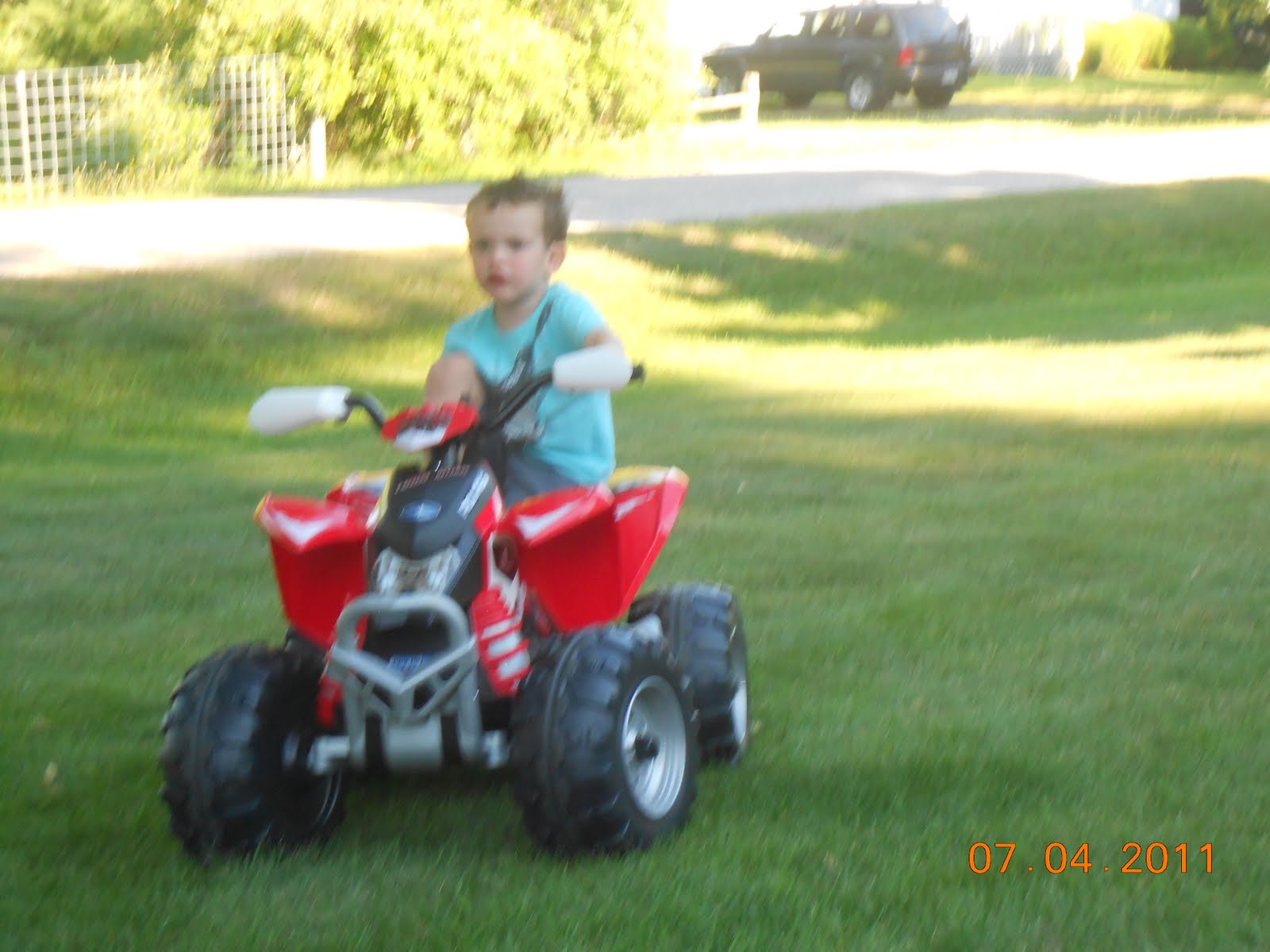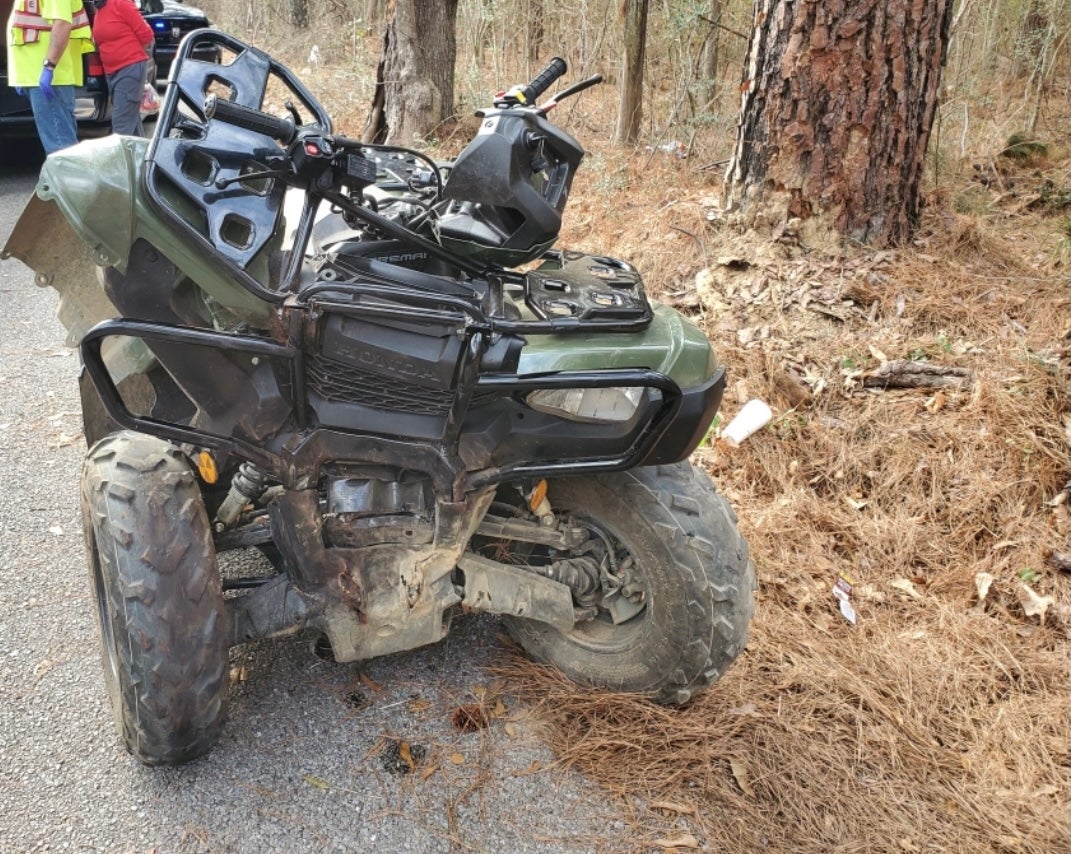Staying Safe: Understanding The Four Wheeler Accident
Riding a four-wheeler, also known as an all-terrain vehicle (ATV), can be a very exciting way to enjoy the outdoors. These machines, with their four sturdy wheels, allow people to travel across various kinds of land, from trails to open fields. Yet, there's a serious side to this fun, something important to think about before you start your engine. An accident involving a four-wheeler, sadly, can happen quickly, turning a pleasant outing into a difficult situation for anyone involved, so it's almost always a good idea to be prepared.
These vehicles, like many animals with four legs, are built for moving over uneven ground. They offer a sense of freedom and adventure that draws many people to them. But, with their open design and ability to go almost anywhere, they also carry risks that are quite different from driving a regular car on a paved road. Understanding these differences, and the potential for a four wheeler accident, is a big step toward keeping everyone safe.
This article will look at why four-wheeler accidents occur, what you can do to avoid them, and what steps to take if one happens. We want to help you enjoy your time on these vehicles responsibly and safely, you know, because safety truly matters. We'll also touch on common injuries and some things to consider after an incident, just to give you a full picture.
Table of Contents
- Understanding Four Wheeler Accidents
- What to Do After a Four Wheeler Accident
- Frequently Asked Questions
- Safety First: A Reminder
Understanding Four Wheeler Accidents
A four-wheeler accident involves a lot more than just a simple bump. These incidents can range from minor tip-overs to very serious crashes, sometimes causing significant harm. The nature of these vehicles, with their high center of gravity and the way they handle off-road terrain, makes them prone to certain kinds of incidents that you might not expect from other vehicles, so that's a key point.
People often use four-wheelers for recreation, like trail riding or hunting, but they are also used for work on farms or construction sites. The rise in outdoor activities, especially in places like East Texas, where a community has been served since 1969, means more people are using these machines. This increased use, in turn, can mean a higher chance of a four wheeler accident if proper care is not taken, as a matter of fact.
Common Causes of Four Wheeler Accidents
Many things can lead to a four-wheeler accident. Knowing these causes can help riders be more careful and avoid dangerous situations. It's not always about one single thing, but often a mix of factors that create a problem, you know.
Riding Too Fast for Conditions
Speed is a big factor in many accidents. Going too fast, especially on uneven ground, makes it harder to control the vehicle. A sudden bump or turn at high speed can easily cause the four-wheeler to flip over, or perhaps even throw the rider off. This is a very common cause, pretty much.
Unfamiliar Terrain
Riding on land you don't know well can be risky. Hidden rocks, deep ruts, or sudden drops can catch a rider by surprise. Even experienced riders can get into trouble if they are not careful about the ground they are covering, you know, because the land can change very quickly.
Lack of Experience or Training
Four-wheelers are not like bicycles; they require specific skills to operate safely. People who have not had proper training or lack enough experience might not know how to handle different situations, like steep hills or sharp turns. This can lead to mistakes that cause an accident, basically.
Riding Under the Influence
Just like driving a car, operating a four-wheeler while impaired by alcohol or drugs is extremely dangerous. It slows down reaction times and affects judgment, making it much more likely for a rider to lose control and have a serious four wheeler accident. This is something that should always be avoided, naturally.
Carrying Too Many Passengers
Most four-wheelers are designed for one rider, or sometimes two if specifically built for it. Carrying extra passengers, especially children, can make the vehicle unstable. This extra weight can shift, causing the four-wheeler to tip or roll, which is a big safety issue, honestly.
Mechanical Issues
Sometimes, a problem with the vehicle itself can cause an accident. Things like faulty brakes, a flat tire, or a steering problem can lead to a loss of control. Regular checks and proper upkeep of the four-wheeler are very important to catch these issues before they cause trouble, as a matter of fact.
Preventing Four Wheeler Accidents
Stopping an accident before it happens is always the best way. There are many steps riders can take to greatly reduce the chance of a four wheeler accident. These steps are not just suggestions; they are vital for safety, you know.
Wear Proper Safety Gear
This is probably the most important step. Always wear a helmet that fits well. A helmet protects your head, which is crucial in any fall or impact. Also, wear eye protection, gloves, long pants, and sturdy boots. This gear protects your body from scrapes, cuts, and more serious injuries, so it's just common sense.
Get Proper Training
Taking a certified ATV safety course can teach you how to handle different terrains, make turns safely, and react to unexpected situations. Even if you think you know how to ride, a course can teach you new skills and reinforce good habits. This kind of training is very valuable, actually.
Ride at a Safe Speed
Always adjust your speed to the conditions of the trail, the weather, and your own skill level. Don't push the machine or yourself beyond what is safe. Slow down around turns, over hills, and on unfamiliar ground. It's much better to arrive safely than to arrive quickly with problems, right?
Inspect Your Four-Wheeler Regularly
Before each ride, give your four-wheeler a quick check. Look at the tires, brakes, lights, and steering. Make sure everything is working correctly. A small problem found before a ride can prevent a big accident during one, basically. This helps ensure the machine is ready for the ride.
Never Ride Under the Influence
This rule is non-negotiable. Do not operate a four-wheeler if you have consumed alcohol or drugs. Your judgment and reaction time are too important to risk. Stay clear-headed and focused when you are riding, because your safety, and the safety of others, depends on it, obviously.
Stick to Designated Trails
Riding off marked trails can lead you into dangerous areas with hidden obstacles or unexpected drops. It can also harm the environment. Stay on trails that are meant for four-wheelers. This helps keep you safe and protects the land, too it's almost a win-win.
Supervise Young Riders
Children should only ride age-appropriate ATVs and always with adult supervision. They need to be taught proper safety rules and how to handle the vehicle. A child's judgment and physical strength are different from an adult's, so extra care is needed, literally.
What to Do After a Four Wheeler Accident
Even with all the safety measures, a four wheeler accident can still happen. Knowing what to do right after an incident can make a big difference in the outcome, especially when it comes to getting help and dealing with injuries. It's a bit like having a plan for an emergency, you know.
Immediate Steps at the Scene
Check for Injuries
The very first thing to do is check yourself and anyone else involved for injuries. Even if you feel fine, some injuries might not be immediately obvious. Look for cuts, bruises, or signs of something more serious. If anyone is badly hurt, do not move them unless they are in immediate danger, pretty much.
Call for Help
If there are serious injuries, or if the situation is dangerous, call emergency services right away. Give them your exact location and describe what happened. Having a cell phone or a way to communicate is very important when riding in remote areas, as a matter of fact.
Secure the Scene
If possible and safe to do so, turn off the four-wheeler to prevent further damage or injury. If there's a fuel leak or other hazard, try to move away from it. This helps keep the area safe until help arrives, you know, for everyone.
Gather Information
If other people or vehicles were involved, get their names, contact details, and any insurance information. Take pictures of the scene, the vehicles involved, and any visible injuries. This information can be very helpful later on, especially if there are legal matters to deal with, obviously.
Report the Accident
Depending on the seriousness of the accident and local laws, you might need to report it to the authorities. This could involve contacting the local police or sheriff's office. A formal report can be important for insurance claims or legal actions, too it's almost a necessary step.
Common Injuries from Four Wheeler Accidents
Because of the way four-wheelers are used and the kinds of accidents that can happen, certain injuries are seen more often. These injuries can affect any of the four limbs of a person, or the main body itself. Knowing what to look for can help you get the right care, you know.
- Head Injuries: These are very serious and can range from concussions to severe brain trauma. This is why wearing a helmet is not just a good idea, but truly essential. A head injury can have lasting effects, so that's a big concern.
- Broken Bones: Falls, rollovers, and impacts can cause bones to break, especially in arms, legs, ribs, and collarbones. These breaks can be painful and require a long time to heal. It's a very common outcome, unfortunately.
- Sprains and Fractures: Even if a bone doesn't fully break, joints can be twisted or stretched beyond their limits, leading to sprains. Small cracks in bones, called fractures, are also common. These can still cause a lot of pain and limit movement, pretty much.
- Cuts and Abrasions: Sliding across rough ground or hitting objects can cause deep cuts and scrapes. These need to be cleaned well to prevent infection. Sometimes, they might need stitches, as a matter of fact.
- Internal Injuries: Sometimes, the body can take a hit without showing external signs, but organs inside can be damaged. This is why it's so important to get checked by a doctor after any significant accident, even if you feel okay, you know, just to be safe.
Frequently Asked Questions
Are four-wheelers safe for kids?
Four-wheelers can be safe for kids, but only with strict rules. Kids should ride ATVs that are the right size for their age and weight. They always need to wear proper safety gear, including a helmet. Most importantly, an adult must always watch them very closely. It's also vital that kids get some training on how to ride safely, as a matter of fact.
What is the most common cause of four-wheeler accidents?
The most common cause of four-wheeler accidents is often riding too fast for the conditions. This includes going too quickly on rough terrain, making sharp turns at high speed, or just not adjusting to the environment. Lack of experience and riding under the influence are also very common reasons for incidents, you know, because they affect control.
Can I sue after a four-wheeler accident?
Whether you can pursue legal action after a four-wheeler accident depends on many things. This includes who was at fault, the seriousness of your injuries, and the laws in your area. It's usually a good idea to speak with a legal professional who understands personal injury law. They can help you figure out your options and what steps to take, just to be clear about your rights. For more information on legal options, you might want to learn more about personal injury claims on our site, or even check out this page about accident recovery.
Safety First: A Reminder
Riding a four-wheeler offers a unique way to explore and enjoy the world around us. From the crushed concrete and asphalt of construction sites to the open fields enjoyed by homeowners, these vehicles help people get things done and have fun. Yet, with the thrill comes a clear need for caution. The number four, which describes the wheels on these machines, also reminds us of the four limbs of our bodies that need protection. Safety should always be the main concern, you know.
Taking the time to prepare, wearing the right gear, and riding responsibly are simple steps that can prevent a four wheeler accident and help ensure a safe and enjoyable experience for everyone. Always remember that getting home safe is the best part of any adventure, so that's the main goal. Stay alert, stay trained, and make smart choices every time you ride, as a matter of fact.
For more general safety tips, you can visit the ATV Safety Institute website. They offer a lot of helpful resources and training opportunities, pretty much.

The JayMac Clan: Our first four wheeler accident

The JayMac Clan: Our first four wheeler accident

Update: Four-wheeler accident victims identified | Prentiss Headlight